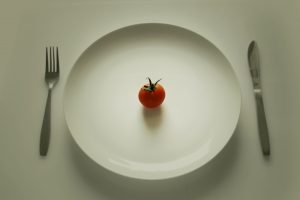By Anthoney J. Andersen – Steroidal.com
When it comes to reaching our ideal body weight, some people are willing to try almost anything once, especially if it means it will help them reach their fitness and weight loss goals that much faster.
No matter what strategy you decide to use to shed those unwanted pounds, the key is to create a negative calorie balance. Given that one pound of fat is equivalent to 3,500 calories, reducing your calorie intake by 500 calories a day may help you lose one pound of fat in a week.
Sounds amazing, right?
That’s because it is.
Think of a mobile device. When it’s time to run a software update, you will most likely run the installations when the battery on your device is fully charged, otherwise it would take your device longer to sync.
A new study has shown that the human energy system operates in a similar fashion. Our metabolisms likely function best in the morning when our bodies are fresh and fully charged.
THE RESEARCH
According to U.S. News & World Report, the research is based on a seven-year dietary analysis of 50,00 adults, which found that body weight – measured by body mass index – corresponds with when we eat, and how often we eat. Specifically, people who eat larger breakfasts and adopt an 18-hour overnight fast – say from 1 p.m. to 7 a.m. – have the lowest body weights.
 The individuals who consumed more than three meals, or three meals plus snacks, had higher BMIs. Those who ate later in the day – after 6 p.m. – compared to having the largest meal at breakfast or lunch, had higher body weights.
The individuals who consumed more than three meals, or three meals plus snacks, had higher BMIs. Those who ate later in the day – after 6 p.m. – compared to having the largest meal at breakfast or lunch, had higher body weights.
Why you ask?
The Loma Linda University researchers hypothesize that the 18-19 hour overnight dietary fast reboots our metabolisms to help our bodies burn calories efficiently. Lead author, Dr. Hana Kahleova – director of clinical research at the nonprofit Physicians Committee – says that this process ensures our energy intake correlates with energy output, instead of energy reserves – or enlarged fat cells.
For many, dinner is often the largest meal of the day, and skipping it may save those 500 calories you need to lose the weight. However, this strategy of skipping dinner will only work if you’re not compensating for those lost dinner calories by eating more at breakfast, lunch or snacks.
To keep calories under control, distribute them evenly between breakfast and lunch, and leave a few hundred calories for snacks. For example, on a 1,600-calorie weight loss diet, you’d eat 600 calories at breakfast and lunch, and have 400 calories left over to distribute between two snacks.
THE HEALTH BENEFITS OF MEAL SKIPPING
Eating light. And eating early. Is key.
According to SFGate.com, skipping dinner entirely can benefit your health in other ways, not just weight loss. For example, if you eat a late lunch mid-afternoon – then fast through the evening – you’re less likely to experience heartburn, acid reflux or trouble sleeping after a heavy dinner that’s too close to bedtime.
A study of diabetic patients in 2014 in the journal ‘Diabetologia’ showed that eating only breakfast and lunch reduced body weight and regulated blood sugar levels more effectively than eating six small meals every day.
Another study published in ‘Free Radical Biology & Medicine’ had overweight adults with mild asthma eat normal meals once a day. This was followed by a day of severely restricted eating, when they ate less than 20 percent of their normal caloric intake, or about 400 or 500 calories a day – the equivalent of about one meal. Nine out of 10 study participants were able to stick with the eating plan.
After following the alternate-day dieting pattern for two months, the dieters lost an average of eight percent of their body weight, and their asthma-related symptoms also improved. They had lower cholesterol and triglycerides, “striking” reductions in markers of oxidative stress and increased levels of the antioxidant uric acid. Markers of inflammation were also significantly lower.
HEALTH RISKS OF MEAL SKIPPING
Many Americans often struggle meeting their daily nutrient requirement in three full meals a day, so subtracting one of these meals from the equation could make it even more difficult to obtain these valuable nutrients.
According to the market research firm NPD Group, most Americans eat less than half of the government recommended amounts of fruits and vegetables every day. Dinner is a prime opportunity to get in some of those healthy foods, and skipping it means you could develop nutrient deficiencies on a long-term basis.
According to Columbia University, skipping any meal on a consistent basis can negatively affect your metabolism and hunger control mechanisms. When you go for more than several hours without eating anything, your blood sugar levels drop and your body is unable to supply your brain with glucose, which has the ability to result in impaired concentration, fatigue, dizziness, irritability or fainting.
The lack of fuel can also cause you to overeat or make poor food choices if you sit down to a midnight snack.
THE WRAP UP
Skipping meals can have both risks and benefits for weight loss. It can work effectively if you’re disciplined enough to eat moderate amounts of healthy foods when you do have a meal and dedicated to reducing your overall caloric intake. In some cases, however, regularly skipping dinner can backfire on you and actually make it easier to gain weight over time.
Eat wisely.







